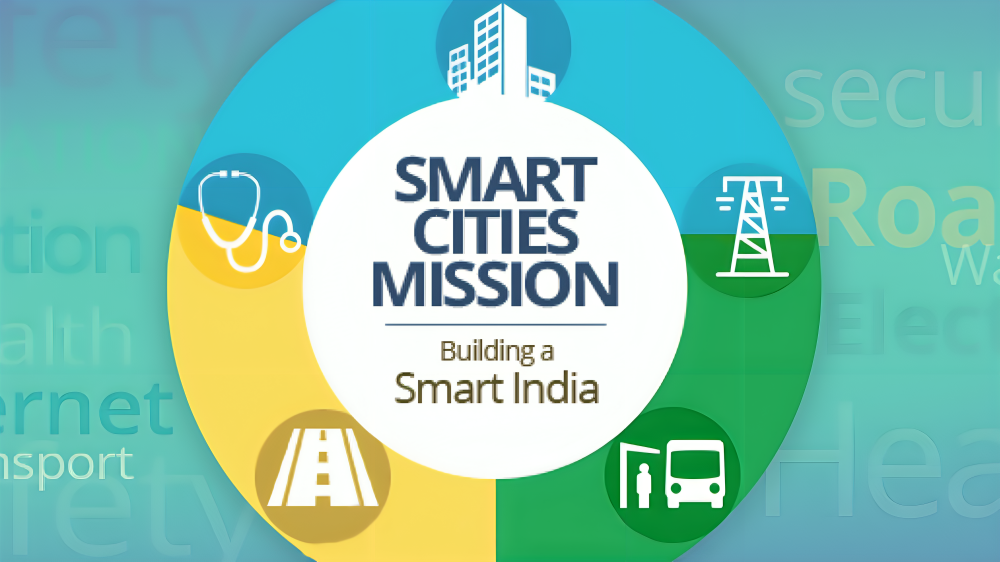India’s cities are evolving rapidly in response to the pressures of population growth, climate change, environmental degradation, and economic transformation. At the heart of this evolution lies the vision of Smart Infrastructure—an integrated framework of digital technology, sustainable practices, and inclusive planning that aims to build resilient urban ecosystems. Central to this vision is the Smart Cities Mission (SCM), a flagship initiative launched by the Ministry of Housing and Urban Affairs (MoHUA), which is extended till March 2025.
As of late 2024, the SCM has witnessed the completion of 7,352 out of 8,066 projects, amounting to ₹1.47 lakh crore out of a total sanctioned ₹1.64 lakh crore. Smart infrastructure in Indian cities now prominently features Integrated Command and Control Centres (ICCCs) operational in all 100 smart cities. These centres utilize artificial intelligence, IoT, and big data analytics to monitor and manage key urban services such as traffic, solid waste, water distribution, and emergency response.
Public safety has been considerably enhanced with the installation of over 76,000 CCTV cameras, 3,000 public address systems, and nearly 2,000 emergency call boxes. This reflects a strong convergence of technology and governance aimed at creating safer and more responsive cities. Mobility infrastructure has also seen a dramatic transformation. Over 12,000 kilometres of smart roads and more than 2,500 kilometres of cycle tracks have been developed.
Intelligent Transport Management Systems (ITMS) now regulate traffic flow, reduce congestion, and improve public transit reliability. Affordable housing, too, has gained focus, with more than 44,000 dwelling units constructed and thousands of rooms created in night shelters and hostels to support the urban poor. The Union Budget 2025 further boosted this momentum by announcing the ₹1 lakh crore Urban Challenge Fund. This fund aims to support innovative, climate-resilient urban projects with up to 25% Viability Gap Funding (VGF), strengthening the economic viability of urban infrastructure.
Parallel efforts under the National Industrial Corridor Development Programme (NICDP) have sanctioned 12 smart industrial cities, including Agra and Prayagraj, as future-ready manufacturing hubs with sustainable planning. Through these initiatives, India is charting a path toward inclusive urban resilience where technology, sustainability, and inclusive development are helping to build cities capable of withstanding and thriving amid future challenges.

